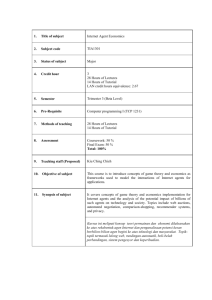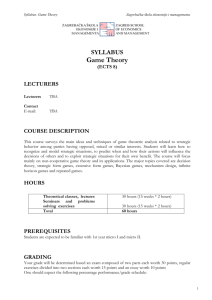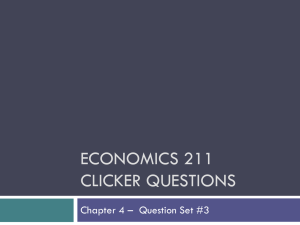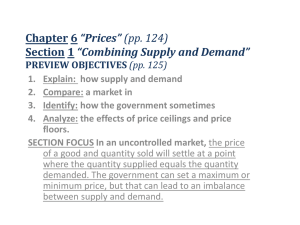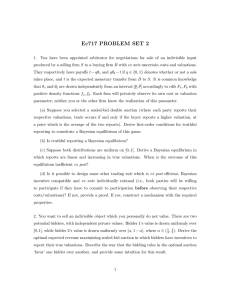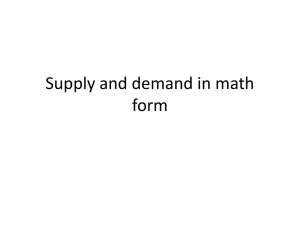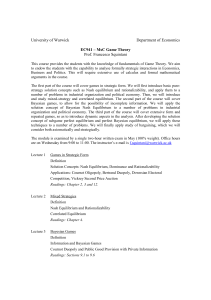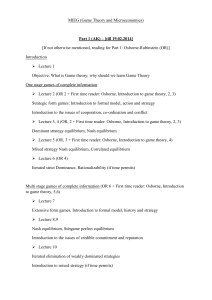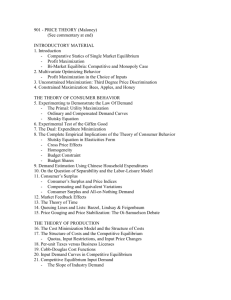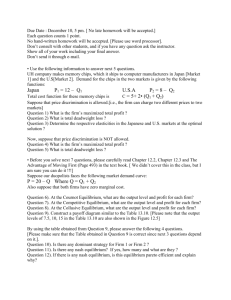The International College of Economics and Finance Syllabus for
advertisement
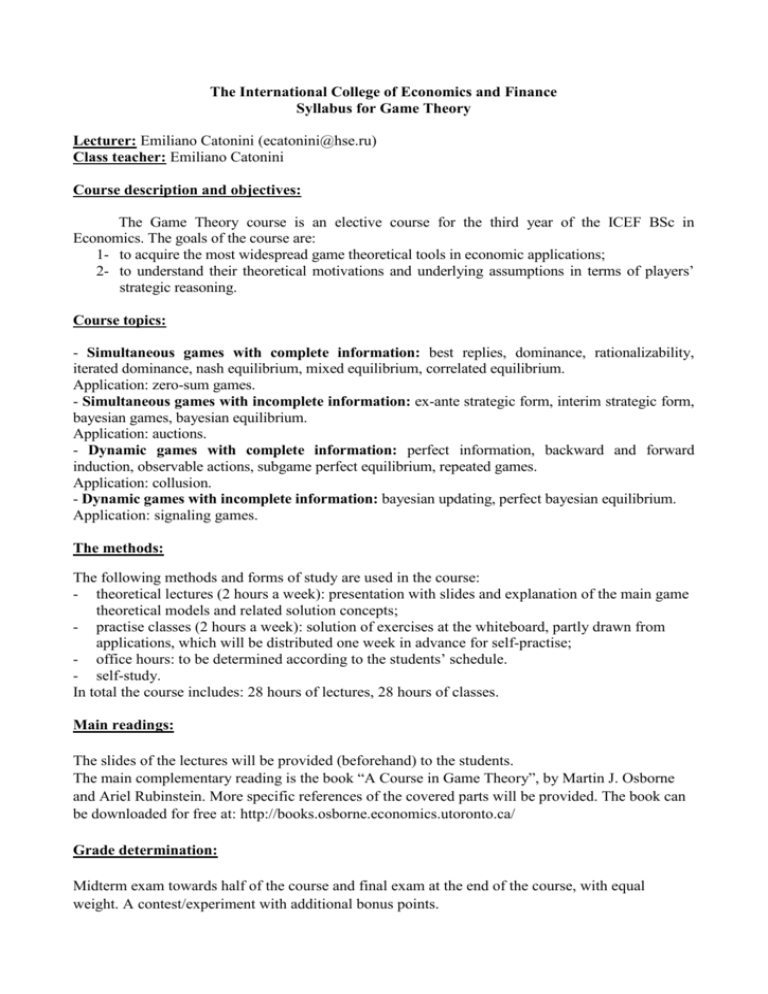
The International College of Economics and Finance Syllabus for Game Theory Lecturer: Emiliano Catonini (ecatonini@hse.ru) Class teacher: Emiliano Catonini Course description and objectives: The Game Theory course is an elective course for the third year of the ICEF BSc in Economics. The goals of the course are: 1- to acquire the most widespread game theoretical tools in economic applications; 2- to understand their theoretical motivations and underlying assumptions in terms of players’ strategic reasoning. Course topics: - Simultaneous games with complete information: best replies, dominance, rationalizability, iterated dominance, nash equilibrium, mixed equilibrium, correlated equilibrium. Application: zero-sum games. - Simultaneous games with incomplete information: ex-ante strategic form, interim strategic form, bayesian games, bayesian equilibrium. Application: auctions. - Dynamic games with complete information: perfect information, backward and forward induction, observable actions, subgame perfect equilibrium, repeated games. Application: collusion. - Dynamic games with incomplete information: bayesian updating, perfect bayesian equilibrium. Application: signaling games. The methods: The following methods and forms of study are used in the course: - theoretical lectures (2 hours a week): presentation with slides and explanation of the main game theoretical models and related solution concepts; - practise classes (2 hours a week): solution of exercises at the whiteboard, partly drawn from applications, which will be distributed one week in advance for self-practise; - office hours: to be determined according to the students’ schedule. - self-study. In total the course includes: 28 hours of lectures, 28 hours of classes. Main readings: The slides of the lectures will be provided (beforehand) to the students. The main complementary reading is the book “A Course in Game Theory”, by Martin J. Osborne and Ariel Rubinstein. More specific references of the covered parts will be provided. The book can be downloaded for free at: http://books.osborne.economics.utoronto.ca/ Grade determination: Midterm exam towards half of the course and final exam at the end of the course, with equal weight. A contest/experiment with additional bonus points.

